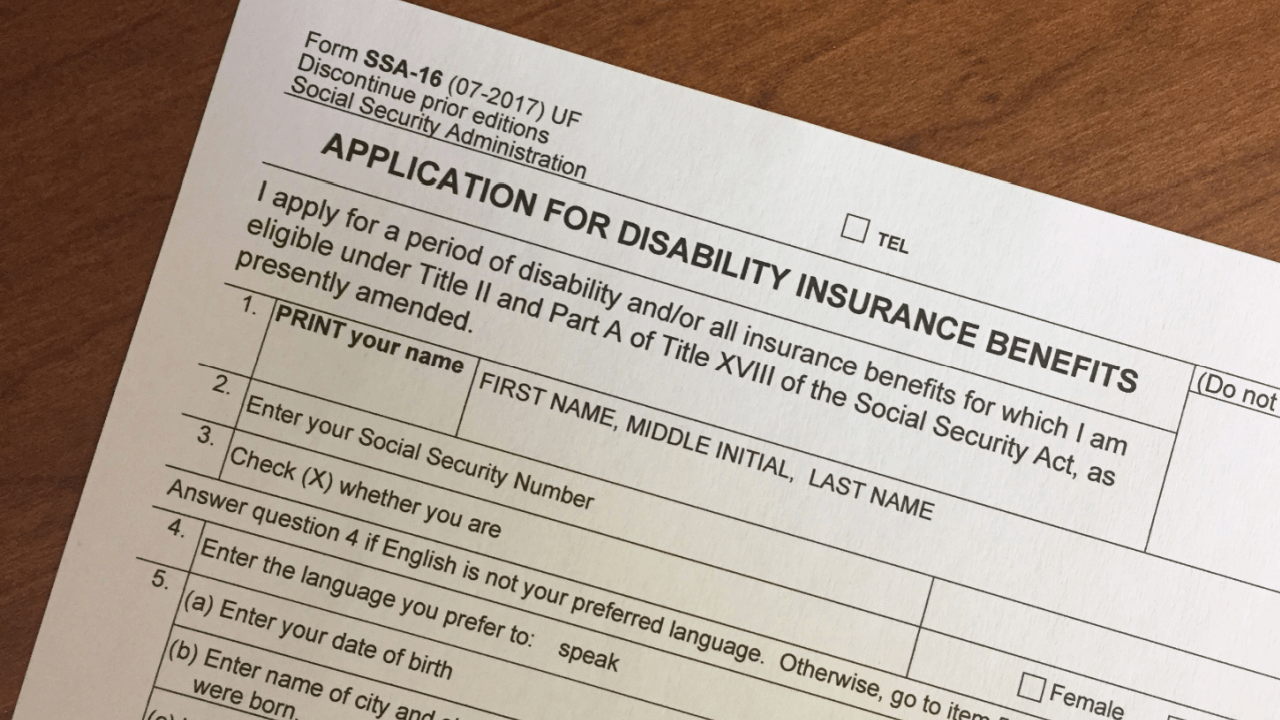
Can You Get SSDI for Depression? What You Need to Know
Can You Get SSDI for Depression?
Can you get SSDI for depression? The answer is yes, but depression must severely limit your ability to work for at least 12 months. Social Security Disability Insurance (SSDI) recognizes depression as a qualifying mental health condition when it meets specific medical and functional criteria. Understanding these requirements can help you navigate the application process successfully.
The Social Security Administration evaluates depression claims using strict guidelines that assess both the severity of symptoms and their impact on daily functioning. While depression affects millions of Americans, not everyone with depression qualifies for SSDI benefits.
Eligibility Criteria: SSDI Requirements for Depression
To determine if you can get SSDI for depression, you must meet both medical and work-related requirements. The Social Security Administration uses a five-step evaluation process to assess disability claims.
First, you must have sufficient work credits based on your employment history. Most people need 40 work credits, with 20 earned in the last 10 years. Each year of full-time work typically earns four credits.
Your depression must also meet the criteria listed in the Social Security Blue Book under Section 12.04 for Depressive, Bipolar and Related Disorders. This includes having at least five specific symptoms such as persistent depressed mood, loss of interest in activities, significant weight changes, sleep disturbances, fatigue, difficulty concentrating, or thoughts of death.
Additionally, your depression must result in extreme limitation in one area or marked limitation in two areas of mental functioning. These areas include understanding and applying information, interacting with others, concentrating and persisting at tasks, and managing yourself.
Documentation Guide: Medical Evidence for Depression SSDI Claims
Strong medical documentation is importantwhen you ask “can you get SSDI for depression?” The Social Security Administration requires comprehensive evidence from qualified mental health professionals.
Your medical records should include detailed treatment notes from psychiatrists, psychologists, or licensed clinical social workers. These records must document your diagnosis, symptoms, treatment history, and response to medications or therapy.
Psychological testing results, mental status examinations, and functional capacity evaluations provide additional support for your claim. Laboratory tests ruling out other medical conditions that could cause depression symptoms also strengthen your application.
Treatment compliance is an important factor Social Security considers when reviewing SSDI claims. You must follow prescribed treatments unless you have valid reasons for non-compliance, such as adverse medication reactions or financial barriers to care.
Work Impact: How Depression Affects Employment Ability
When evaluating whether you can get SSDI for depression, Social Security focuses on how symptoms prevent you from maintaining employment. Depression affects work performance in numerous ways that extend beyond feeling sad.
Concentration difficulties make it challenging to complete tasks, follow instructions, or maintain attention during meetings. Memory problems interfere with learning new job responsibilities or remembering important deadlines.
Social withdrawal and anxiety can make workplace interactions extremely difficult. Many people with severe depression struggle with attendance due to fatigue, sleep problems, or inability to get out of bed during depressive episodes.
Decision-making becomes impaired, affecting job performance and workplace safety. Irritability and mood swings can create conflicts with supervisors and coworkers, leading to disciplinary actions or termination.
Application Advice: Tips for SSDI Success with Depression
Maximizing your chances of approval when asking “can you get SSDI for depression?” requires careful preparation and attention to detail throughout the application process.
Maintain consistent treatment with qualified mental health professionals. Gaps in treatment can raise questions about the severity of your condition. Document all symptoms in a daily journal, noting how depression affects your ability to perform work-related activities.
Be completely honest during psychological evaluations and consultative examinations. Attempting to exaggerate or minimize symptoms can affect how your information is evaluated.
Submit all requested medical records promptly and ensure your healthcare providers provide detailed, specific information about your limitations. Generic statements about depression are less effective than specific examples of functional impairments.
Consider working with a disability attorney or advocate, especially if your initial application is denied. Representation can help applicants understand the process and prepare their case for review.
Approval Insight: Can You Get SSDI for Depression?
Many people wonder “can you get SSDI for depression?” because approval rates vary significantly. Initial application approval rates for mental health conditions, including depression, are typically lower than for physical impairments.
However, some claimants continue through reconsideration or hearing stages after initial denials. Administrative Law Judges review the evidence presented and consider how depression affects daily functioning under Social Security rules.
The key to success lies in building a strong medical record, maintaining consistent treatment, and clearly demonstrating how depression prevents you from working. With proper documentation and, when appropriate, professional assistance, applicants can present their information for Social Security’s review.
Take the Next Step for Your SSDI Depression Claim
If you’re still wondering “can you get SSDI for depression?” and believe your condition qualifies, don’t wait to begin the application process. Early action allows more time to build medical evidence and address any deficiencies in your claim.
Start by gathering your medical records and consulting with your healthcare providers about your work limitations. For comprehensive guidance on navigating the SSDI application process and connecting with qualified disability attorneys, visit SocialSecurityDisability.com to access expert resources and personalized support for your depression-related disability claim.
Frequently Asked Questions
1. How long does it take to get approved for SSDI with depression?
The initial application process typically takes 3-6 months, but appeals can extend the timeline to 1-2 years. Building strong medical evidence from the beginning can help expedite approval.
2. Can you work while applying for SSDI for depression?
You can work while applying, but earnings must stay below substantial gainful activity limits ($1,550 per month in 2025). Working above this threshold may disqualify your claim.
3. What percentage of SSDI claims for depression get approved?
Initial approval rates for mental health conditions range from 25-35%, but overall approval rates including appeals reach approximately 65% for represented claimants.
4. Do you need to take medication to qualify for SSDI with depression?
You must follow prescribed treatments, including medications, unless you have valid medical reasons for non-compliance such as severe side effects or medication allergies.
5. Can anxiety disorders combined with depression strengthen an SSDI claim?
Yes, co-occurring conditions like anxiety can strengthen your claim by demonstrating multiple areas of functional limitation and supporting the severity of your overall mental health impairment.
Key Takeaways
- Depression qualifies for SSDI when it severely limits work ability for at least 12 months and meets Blue Book criteria
- Strong medical documentation from qualified mental health professionals is essential for approval
- Consistent treatment compliance and detailed symptom documentation are important factors in the review process
- Initial denials are common, and some applicants pursue appeals
- Disability representation can help applicants navigate requirements at different stages of the process


